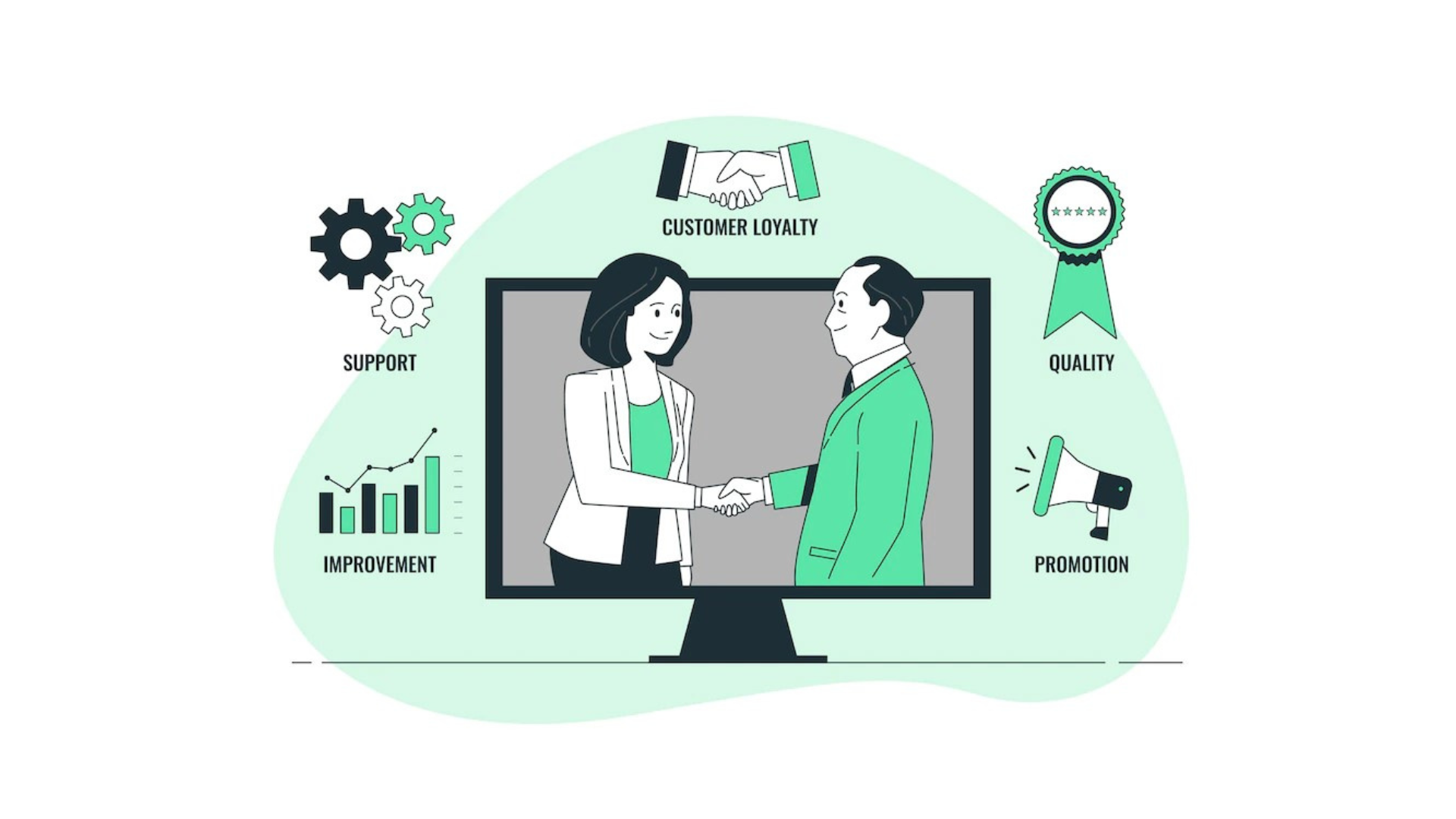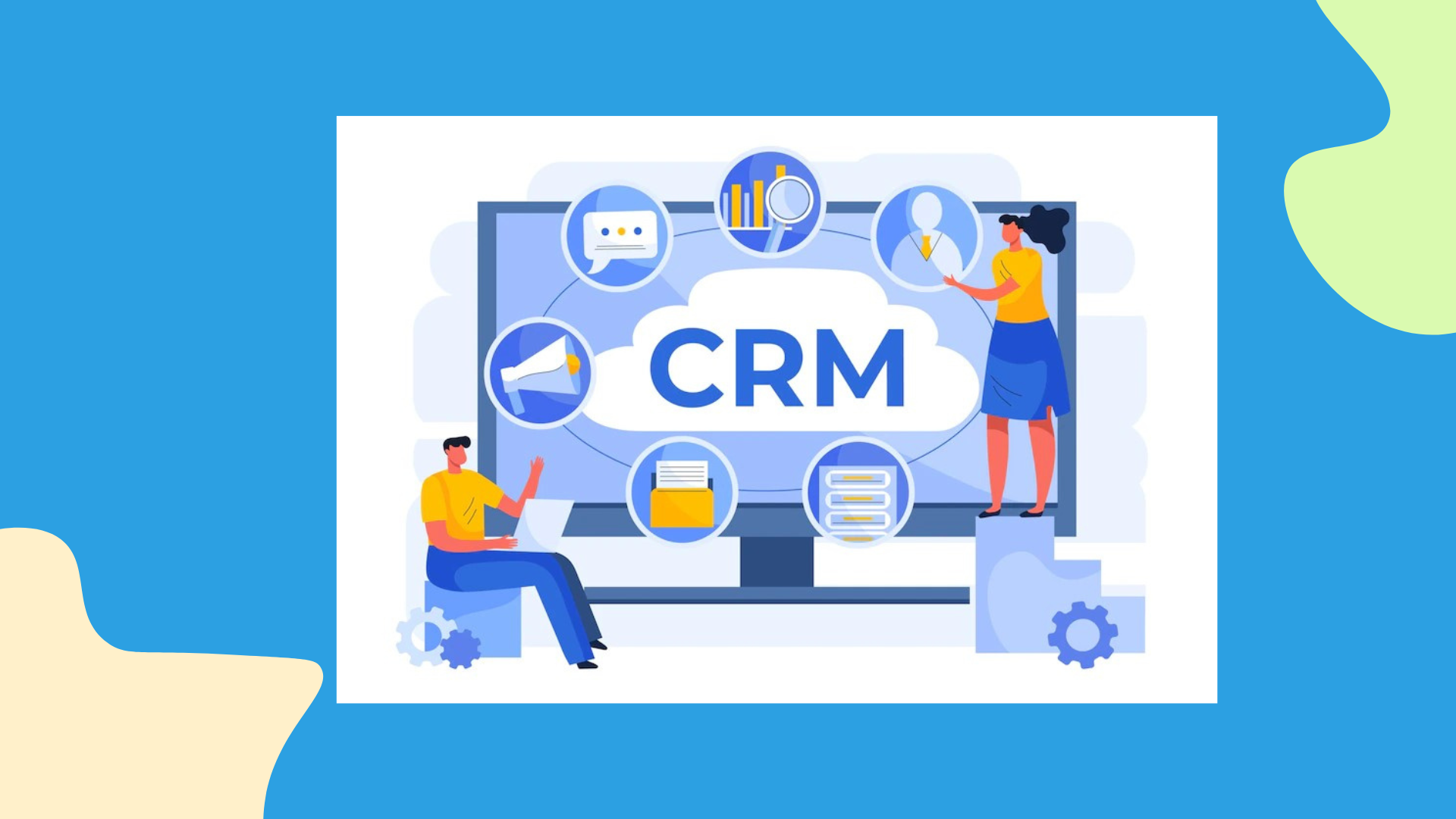
Kyle Miller
Marketing Manager
Author Bio:
Kyle Miller is the manager at Incrementors, a company that assists clients in expanding their online businesses by bringing in more customers, Incrementors is a multi-award winning digital marketing agency lead, and sales. Online marketing solutions that are specifically adapted to the demands of the clients are the Incrementors' area of expertise.
Introduction
Do you want to increase customer loyalty and profitability in your business? If so, then CRM (Customer Relationship Management) may be the answer. CRM enables businesses to track customer interactions, streamline processes, and improve customer relationships.
In this article, Incrementors toronto local seo agency for business will explore the benefits of CRM for your business, review the different types of CRM systems, and discuss best practices for implementation. By the end, you'll have a greater understanding of how using CRM can help you reach your business goals.
What is CRM?
CRM stands for Customer Relationship Management, and is a type of software used to help businesses manage interactions with their customers and potential customers. By automating and streamlining customer relationship tasks and processes, CRM makes it easier to keep track of customer interactions, and feedback, so companies can better understand and respond to their customers' needs.
CRM is an umbrella term that covers everything from marketing and sales to customer service and customer success. It provides a single source of consolidated customer data, which can help businesses better understand their customers and how to serve them better. CRM also helps to maximize customer loyalty by tracking customer engagement levels, allowing businesses to provide personalized service.
CRM solutions also help businesses increase efficiency by automating many of the manual processes associated with customer relationship management, such as customer segmentation and lead generation. By using CRM, businesses are able to quickly identify customer preferences and create targeted campaigns that are tailored to specific customer segments. This helps build stronger relationships with current customers and more effectively acquiring new ones.
Overall, utilizing a CRM system can greatly increase the efficiency and effectiveness of a business's customer relationship management. It helps businesses make better decisions, improve customer service, and identify new opportunities to increase customer loyalty. By taking advantage of CRM, businesses can maximize customer engagement and loyalty, leading to long-term customer satisfaction.
How does CRM help you grow your business?

The use of a Customer Relationship Management (CRM) system is an increasingly important tool for businesses of all sizes and can be an extremely effective tool in growing your business. In its simplest form, a CRM system is like a digital record of all your customer interactions and can be used to manage customer relationships, track sales, and interact with customers.
When used correctly, a CRM system can provide businesses with valuable insights about their customers and their behavior. By understanding customer behaviors, businesses can better tailor products and services to meet customer needs and increase customer satisfaction. This deeper understanding of customers helps businesses build better relationships, which can result in increased customer loyalty and better customer retention rates.
The ability to track customers and their interactions also helps businesses create more effective marketing campaigns. By collecting customer data, businesses can create targeted campaigns that are more likely to reach the right audience and generate more conversions. This can help businesses grow by increasing their customer base and increasing overall sales.
In addition to helping businesses grow their customer base, a CRM system can also help businesses reduce costs. By automating tasks like customer data collection and customer segmentation, businesses can reduce their manual workload and free up internal staff to focus on more important tasks. This can lead to efficiency gains and cost savings over time.
Overall, a CRM system can be an invaluable tool for businesses looking to grow their customer base and improve customer relationships. By tracking customer interactions, creating more effective marketing campaigns, and automating manual tasks, businesses can gain valuable insights about their customers and use that information to develop better products, services, and customer experiences.
What are the advantages of using a CRM system?
A Customer Relationship Management (CRM) system is an invaluable tool for businesses of all sizes, allowing them to better manage their customer relationships and increase their overall efficiency. By streamlining customer-related data such as contact information, sales history, customer feedback, and more, a CRM system can help businesses keep track of customer interactions, quickly make important decisions, and gain insights into their customers’ needs.
The advantages of using a CRM system are numerous, ranging from improved customer relations to increased profits. Here are just a few of the ways that a CRM system can benefit your business:
1. Improved Customer Relations:
By having all customer information stored in one place, businesses can quickly access necessary information and respond to customer inquiries quickly and accurately. Additionally, a CRM system can help you identify customer patterns and needs and develop a plan to effectively meet those needs.
2. Increased Efficiency:
With a CRM system, businesses are able to reduce manual data entry and streamline administrative tasks, freeing up time that would otherwise be spent on data entry or retrieving customer information. Additionally, a CRM system can help you identify bottlenecks in your processes and make adjustments to increase efficiencies and save time.
3. Improved Customer Retention:
A CRM system can help you track customer behavior and identify which customers are likely to leave, allowing you to target them with special offers or other incentives to retain their business. This helps ensure that your customers are satisfied and remain loyal customers.
4. Increased Profitability:
A CRM system can help you identify opportunities for increased sales and dynamic pricing, allowing you to take advantage of them and increase your profits. Additionally, it can help you identify customer trends and analyze customer feedback to help you make decisions that will benefit your bottom line.
By utilizing a CRM system, businesses can reap a wide variety of benefits that can help them increase customer satisfaction and maximize their profits. Whether you’re managing a start-up, small business, or larger enterprise, a CRM system is a great investment that can help you maximize efficiency and better manage customer relationships.
How does CRM improve customer relationships?

Customer Relationship Management (CRM) enables businesses to build and maintain positive relationships with their customers. Its goal is to maximize customer loyalty and purchase frequency. By utilizing CRM, businesses can enhance customer relationships, foster effective communication, and provide better customer service.
CRM offers businesses numerous advantages, one of which is improved customer relationships. By keeping customer data up to date and accurate, businesses can prioritize their customer’s needs, respond to customer inquiries faster, and anticipate customer’s needs by providing better customer service.
With CRM, businesses can track customer interactions, monitor customer behaviour, analyze customer feedback, and create targeted campaigns to engage customers and nurture relationships. CRM also enables businesses to track customer purchases, order history, and contact information, giving businesses a comprehensive view of each customer. This allows them to personalize customer experiences and provide individualized service, ultimately increasing customer satisfaction and loyalty.
CRM can also be used to better understand customer needs and preferences, which is essential for developing effective marketing strategies. By analyzing customer data and local SEO strategy, businesses can monitor customer interaction trends, identify buying patterns, and develop strategies to capture more of their customer’s attention. This helps businesses stay competitive and build a strong customer base.
Overall, CRM can lead to improved customer relationships, increased sales, and better customer loyalty. By utilizing CRM, businesses can maximize customer satisfaction and engagement, resulting in long-term relationships and increased revenue.
What are the best practices for implementing CRM in your business?
The implementation of customer relationship management (CRM) into a business operation can bring with it a host of benefits, such as improved customer experience, streamlined processes and increased customer loyalty. However, before these benefits can be realized, it is important to ensure that the system is correctly prepared and implemented. This can be done by following best practices when setting up the CRM, thereby ensuring that the system performs optimally and all goals are achieved.
One of the best practices for implementing CRM is to clearly define the objectives and goals of the system. This should be done before beginning the process, as this helps to ensure that the system is properly tailored to the needs of the business. It is also important to understand who will be using the system and what purpose it will serve, as this helps to ensure that the system is designed with the user in mind.
Once the objectives and users have been identified, the next step is to identify the types of data that will be stored in the system. This includes customer and lead data, such as contact information, preferences, and purchase history. This will help to ensure that the system is tailored to the needs of each customer, as well as helping the business to better understand customer behavior and preferences. If you want more leads to your business using your website than you can reach out to Incrementors lead generation service
Another best practice for implementing CRM is to ensure that the system is integrated with other platforms and services used by the business. This helps to ensure that customer data is readily accessible, and that customer data from multiple sources can be viewed in a single system. This can also help to ensure that customer data is kept up to date, as the system can be easily updated from external sources.
Finally, it is important to ensure that the system is properly maintained. This includes regular review of the system and its data, as well as ensuring that all users of the system are properly trained on its use. Additionally, it is important to ensure that the system is kept up to date with the latest security protocols in order to protect customer data and prevent any unauthorized access.
By following these best practices when implementing CRM in a business setting, businesses can ensure that the system is tailored to their needs, that customer data is kept up to date, and that the system is secure. This will help to ensure that the system is effective in achieving the desired objectives and that the business can benefit from improved customer experience, streamlined processes, and increased customer loyalty.
Conclusion
In conclusion, customer management (CRM) can be a powerful tool for growing any business. When used properly it can provide a valuable insight into customer relationships, help to improve customer satisfaction, and increase revenues. By understanding the various benefits of a CRM system and properly implementing best practices, businesses can maximize their customer relationships and increase their success.












